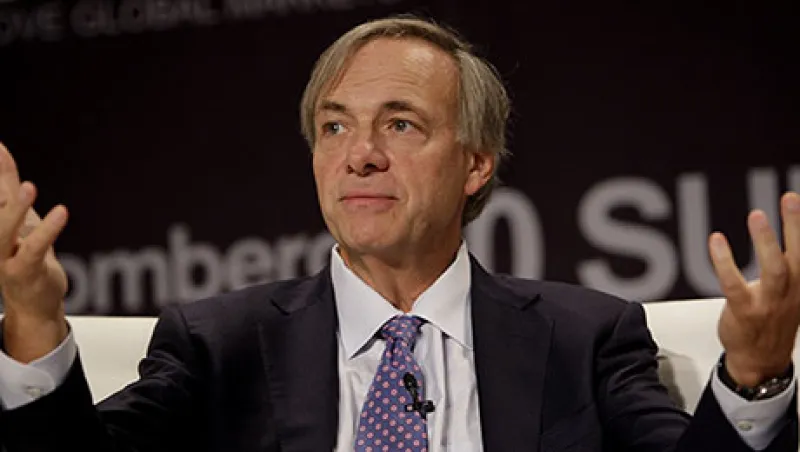
Raymond "Ray" Dalio, president and founder of Bridgewater Associates LP, speaks during the Bloomberg Markets 50 Summit in New York, U.S., on Wednesday, Sept. 14, 2011. The one day conference aims to bring together leaders in the markets, business, finance, and government to discuss the global economy. Photographer: Scott Eells/Bloomberg *** Local Caption *** Raymond "Ray" Dalio
Scott Eells/Bloomberg

